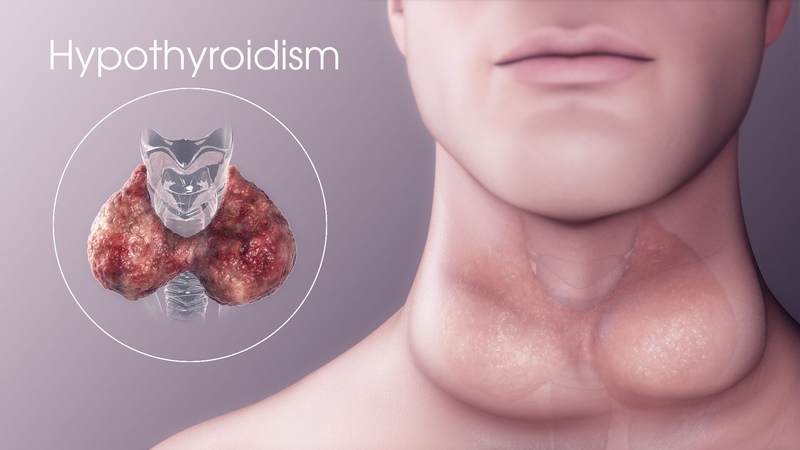Understanding Thyroid Conditions
Feb 25, 2024 By Nancy Miller
Thyroid disorders, with their prevalence and profound impact on overall well-being, command attention in the realm of health conditions. Situated as a butterfly-shaped gland in the neck, the thyroid plays an imperative role. It regulates various bodily functions. This article endeavors to illuminate aspects of thyroid problems including symptoms, causes, and natural treatment options.
1. Thyroid Problems Unveiled
Beyond the common hypothyroidism and hyperthyroidism, thyroid problems manifest as a complex spectrum of disorders. For instance, Hashimoto's thyroiditis is an autoimmune condition. It induces hypothyroidism when the immune system erroneously attacks the thyroid. In contrast, Graves' disease is a different autoimmune disorder. It causes an overproduction of hormones leading to hyperthyroidism by affecting the function of the thyroid gland. Understanding the nuances of thyroid nodules, which are often benign but can disrupt hormone production or indicate thyroid cancer in rare cases, is crucial to diagnosing accurately and devising tailored treatment plans.

Further expansion reveals that thyroid disorders differentially affect distinct age groups. Hypothyroidism, for instance, prevails among middle-aged and older individuals. Contrastingly, hyperthyroidism frequently presents itself in younger adults. Environmental factors, notably radiation exposure, also contribute to the onset of thyroid dysfunction. These factors intricately interact, underscoring the necessity for personalized management approaches in addressing thyroid problems.
- Diverse Manifestations: Thyroid disorders can present differently, demanding individualized diagnostic approaches.
- Age and Environmental Impact: Age and environmental factors play distinct roles in the onset of thyroid problems.
2. Symptoms of Thyroid Problems
Thyroid disorders reveal themselves in subtle yet impactful ways, extending beyond the commonly recognized symptoms of weight changes, fatigue, and hair loss. Cognitive anomalies like difficulty concentrating or memory lapses can act as signals for thyroid dysfunction. Likewise, skin alterations such as dryness or shifts in texture may manifest. Understanding the nuanced signs denotes a deeper comprehension of complex indicators that facilitate early detection. This can potentially prevent complications altogether.
Delving deeper, notably, thyroid problems can indeed impact mental health. Both hypo and hyperthyroidism are linked to anxiety and depression. This underscores the necessity for an all-encompassing approach to treatment. This is a strategy that also considers potential alterations in bowel habits as indicators of thyroid imbalances: these may include constipation or diarrhea.
- Cognitive Impact: Thyroid disorders may influence cognitive functions, requiring comprehensive assessment.
- Mental Health Connection: Mental health considerations are integral to understanding and addressing thyroid symptoms.
3. Causes of Thyroid Conditions
Genetics significantly influence thyroid disorders, but environmental factors also contribute. Certain regions still find relevance in iodine deficiency, which was once a primary cause of hypothyroidism. Stress is a prevalent affliction in our modern world. It can either trigger or intensify thyroid problems. Particularly, medications containing lithium or interferon-alpha may disrupt thyroid function. Being aware of these diverse causes empowers the implementation of proactive measures for prevention and early intervention.
Comprehending these factors related to life stages deepens our understanding of the causation behind thyroid disorders.
- Environmental Influences: Beyond genetics, environmental factors significantly contribute to thyroid conditions.
- Life Stage Considerations: Hormonal changes during pregnancy and menopause can impact thyroid health.
4. Natural Treatment for Thyroid Problems
Concurrently with medical interventions, incorporating natural approaches, specifically, consuming Brazil nuts and sunflower seeds for their trace element selenium. This is crucial to enhancing thyroid health. The role of selenium in thyroid function is pivotal. Furthermore, Vitamin D is essential for immune regulation. It not only supports overall health but also specifically aids in maintaining a healthy thyroid gland. Beyond its general benefits, regular exercise specifically enhances thyroid function. It accomplishes this by boosting metabolism and curtailing inflammation.

Further expanding, we note that mindful practices include yoga and meditation. These contribute to stress management, a positive impact on thyroid health. Yet, caution must be exercised in self-administering herbal supplements, particularly Ashwagandha and Guggul, while they show promise, their dosage and efficacy fluctuate significantly necessitating consultation with a healthcare professional.
- Selenium and Vitamin D: Ensuring adequate intake of selenium and vitamin D supports thyroid function.
- Caution with Herbal Supplements: Consultation with a healthcare professional is crucial before incorporating herbal supplements.
5. Medical Treatments for Thyroid Problems
Depending on the specific thyroid condition, medical treatments vary. In cases of hypothyroidism, a primary approach involves hormone replacement therapy. Commonly prescribed to restore hormone levels and alleviate symptoms is Levothyroxine, a synthetic form of the thyroxine thyroid hormone. To ensure optimal thyroid function, one must regularly monitor and adjust medication dosage. Furthermore, physicians may prescribe antithyroid medications such as methimazole or propylthiouracil for hyperthyroidism to inhibit excessive hormone production.
In cases where medication alone proves insufficient, one may consider more aggressive interventions. For instance, radioactive iodine therapy is a common procedure for managing hyperthyroidism. This involves administering a dose of radioactive iodine to reduce thyroid activity. Surgical options also exist, chief among them is thyroidectomy, which either partially or completely removes the thyroid gland. Physicians often recommend it in instances of severe hyperthyroidism or suspected/confirmed cases of thyroid cancer.
- Levothyroxine for Hypothyroidism: Levothyroxine is the standard medication for hypothyroidism, requiring careful dosage adjustments.
- Individualized Treatment Plans: Tailoring treatment to individual factors ensures the effectiveness of medical interventions.
Conclusion
To conclude, one must navigate the complexities of thyroid problems with a holistic approach, understanding symptoms and causes, while incorporating natural treatments. This method significantly enhances thyroid condition management. Therefore, if you suspect an issue, a consultation with a healthcare professional becomes imperative for accurate diagnosis and personalized treatment plans. Empower yourself with the knowledge to promote thyroid health and overall well-being.
After having access to this comprehensive guide, you don’t need to worry if life throws you some curveballs and you face thyroid problems, or someone you love has thyroid problems. You use natural treatments to tackle the problem proactively. Whenever you think you need to consult medical professionals, that’s the best way to go to treat the problem once and for all.







